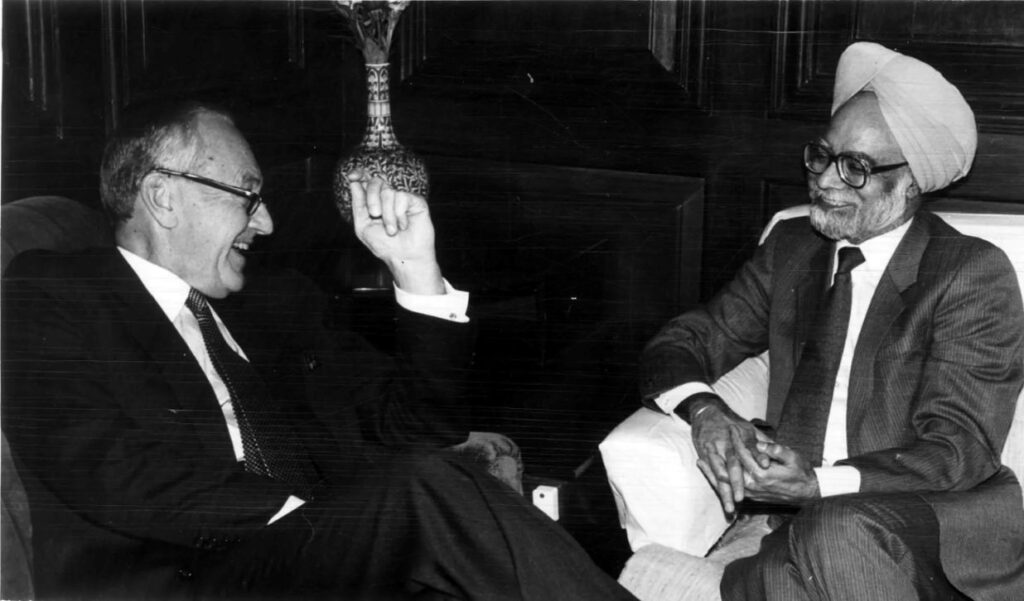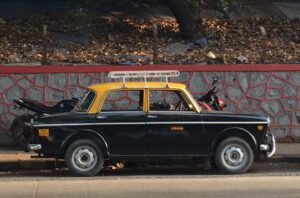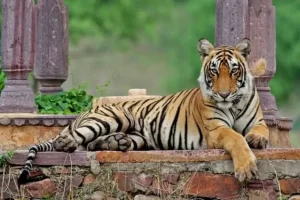Manmohan Singh transformed India’s relationship with the US, overcoming significant political, intellectual, and bureaucratic opposition. This achievement stands as his greatest strategic accomplishment as prime minister. It also supported his role in driving India’s economic growth in the 1990s.
As finance minister from 1991 to 1996, Manmohan Singh laid the groundwork for India’s economic transformation and its subsequent global ascent. His decade-long tenure as prime minister from 2004 to 2014, though often overlooked, played a crucial role in shaping a foreign policy strategy that emphasized regional peace and fostered a strong global partnership with the United States.
Also Read:http://rupee-records-biggest-single-day-fall-of-46-paise-hits-new-all-time-low
Internal and External Challenges to Singh’s Diplomacy
However, challenges within his own party, opposition from both the left and right wings of the political spectrum, and deep-rooted resistance from the bureaucracy and foreign policy community hindered Singh from fully capitalizing on the diplomatic opportunities that emerged early in his tenure.
In the early weeks of 2005, as prime minister, Singh had the chance to make significant progress in India’s most challenging relationships—those with Pakistan, China, and the US. The trajectory of Singh’s foreign policy largely revolved around how these three diplomatic initiatives, launched in the spring and summer of 2005, evolved throughout the remainder of his time in office.
Read Also:http://abdul-rehman-makki-deputy-chief-of-lashkar-e-taiba-2611-mumbai-attack
Atal Bihari Vajpayee’s tenure (1998-2004) created three opportunities, which Manmohan Singh’s was ready to seize.
It’s important to remember that the other party has a veto. It’s not just about our interests. To turn opportunities into results, a willing counterpart is essential. While Pakistan and China were not convinced of the need for immediate peace, Washington was eager to build a broader relationship with Delhi.
P.V. Narasimha Rao and Vajpayee tackled external crises with new approaches to Pakistan, China, and the US. This included Vajpayee’s 1998 nuclear tests. Singh built on this favorable situation, pushing progress on these diplomatic fronts.
General Pervez Musharraf visited Delhi in April 2005, officially for a cricket match. It was an opportunity to explore a potential Kashmir settlement. However, despite serious back-channel talks led by Ambassador Satinder Lambah, the discussions could not be concluded.
The Congress party was hesitant to make significant moves with Pakistan. Singh was even prevented from visiting the country. As Delhi hesitated, momentum stalled in Pakistan. Musharraf’s influence waned, and relations deteriorated into crisis after the Pakistan-backed terror attacks in Mumbai in November 2008.
Read Also: Ex-Prime Minister Manmohan Singh Passes Away at AIIMS, Delhi











More Stories
कमल हासन: 19 फिल्मफेयर, 4 नेशनल, पद्मश्री और पद्मभूषण अवॉर्ड भी नहीं रोक पाए विरोध की आंधी, अब क्यों जल रहे हैं इस सुपरस्टार के पुतले?
गोवा में टैक्सी संकट: चालकों का विरोध तेज, सरकार ने सरकारी ऐप से जुड़ने की अपील की
Prey Decline Fuels Tiger-Human Conflict in East India